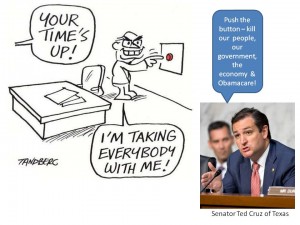The repercussions of several generations of corporate control of government and its private contracts with government has brought a heavy toll on American security. The most recent example is the Russian cybersecurity breach of government agencies, as well as major corporations. The breach in our cyberspace was discovered two months ago through a popular piece of private-industry software called Solarwinds.
A growing government reliance on for-profit private industry contracts in all realms of public institutions has left us exposed. Corporate focus from the late 1970s to the present day has been on power and control. A major part of that endeavor has been privatizing public services, including education, health care, retirement, social security, prisons, highways, internet, and cyberspace. To justify this crusade, government functions had to be demeaned.
Embedded in this effort was a relentless campaign to discredit, even demonize government as ineffective, incompetent, even bordering on corrupt.
The Republican party, becoming a certified corporate agent, has been relentless in spreading this misinformation since the Ronald Reagan administration. Most notable was his inaugural Address in 1981 when he said, “Government is not the solution to our problem, government is the problem.” At a second-term news conference, he cemented his evisceration of government: “The nine most terrifying words in the English language are: I’m from the Government, and I’m here to help.”
Government bureaucracy has helped some of it. Exercising political domains help drive it, as well as extremes in focus, whether it is corporate influence, poor public management, or waste. But much of the transactional impetus comes from corporate motivation to maximize profit at public expense.
Whatever the cause, there are consequences. Government’s role is to represent the interests and the protection of the people. The corporate interest is maximizing profit. All else is not in the corporate focus.
But, of course, when the people don’t vote for representatives who have an interest in discharging duties for the people but instead focus on the good of corporations or themselves, the people are forgotten. At the same time accountability for our security, our welfare and our needs is lost if we depend on private industry to perform public functions.
Both problems led to the most disruptive cyberwar between the United States and Russia. Last March, Russian soldiers sabotaged computer code buried in a popular piece of private software called Solarwinds. The hidden virus spread into 18,000 government and private company organizations almost a year ago when Solarwinds’ network management software was updated with 4032 lines of malware code written by Russian hackers.
It was not discovered until FireEye, a cybersecurity company, discovered it last November. That meant that for nine months the Russian military had access to nuclear secrets, court documents, and government email from the departments of Energy, Treasury, Commerce and Justice, not to speak of many major corporations like Microsoft. We don’t really know if they have access to our smart phones.
Their reach was and is immense. None of us can trust software anywhere: apps on smart phones, laptops, tablets and desktops. Most discovered hackers stop when exposed. The estimated 1000 Russian engineers continue infiltrating while we assess the damage, this while Microsoft alone assigned 500 engineers to discover the range and damage of the malware code.
Government concerns for national cybersecurity stop and start with public networks and software. The many private software avenues are not the concern of the National Security Agency (NSA), though much private software overlaps with government endeavors.
The Solarwinds software, used to connect, manage and monitor computer networks, public and private, was a perfect place for Russian agents to plant their malware to infect a maximum of critical organizations. That is how it got into Microsoft and major government agencies.
While Russian was planting its malware code last year, a narcissistic misfit that American voters hired for president was spreading lies about election fraud. He hardly took notice of the SolarWinds hack and when confronted, he blamed China.
The Russian cyberwar has been with us for awhile but its highway of damage has been more open with the hollowed-out, grifter-intensive government of Donald Trump, proven to be Putin friendly and undeterred by any accountability or control, especially by his own party.
In 2017, Russia first developed its cyberwarfare tactics with its Petya malware in Ukraine which affected banks, ministries, newspapers and electricity firms. Later, Russian hackers hid their malware in a tax accounting package software, named MeDoc. A modified Petya, called NotPetya, was installed in an accounting update made on 1 million Ukrainian computers. It was estimated that 10% of the computers had to be destroyed in order to dispel the malware.
It is not known if Russians called the Solarwinds malware NotNotPetya.
Nevertheless, a privatized government laden with profit-focused functions has little time or inclination to concentrate on endeavors that preserve national interests, a tendency we have seen on the rise as our country’s culture continues to evolve toward a corporatocracy.
With the democratic bent of the Biden administration, perhaps, it is not too late to begin evolution back toward a functioning democracy.
Vladimir in your Smart Phone?,




